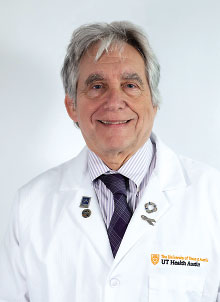Finding a Balance in the Chemical Imbalance Theory
Abstract
A review article has reinvigorated the debate about the role of serotonin in depression and how much emphasis biology has in depression management.

Was it a comprehensive takedown of the flawed rationale for antidepressants or a flawed analysis of just one of the many mechanisms underlying depression? These questions have been circulating in the psychiatric community since an umbrella review—an overview of existing meta-analyses and systematic reviews—was published last year in Molecular Psychiatry.
The review by a team at University College London included several lines of research testing serotonin’s role in depression, including genetic analyses as well as studies of people whose diets led to artificially low levels of serotonin. Based on this review, the authors concluded that “there is no convincing evidence that depression is associated with, or caused by, lower serotonin concentrations or activity.”
“There are several theories floating around on the mechanisms of depression, but one of the main concepts is that it’s related to an imbalance of serotonin,” lead study author Joanna Moncreiff, M.D., a professor of critical and social psychiatry at University College London, told Psychiatric News. Almost all antidepressants, including the widely prescribed selective serotonin reuptake inhibitors (SSRIs), target serotonin receptors and/or transporters.
“If that’s not the case, we must question how and why we use antidepressants,” Moncreiff continued.
Psychiatrists Question Quality of Studies in Review

“As with any analysis of this type, your results are only as good as the quality of the studies going in.” —Charles Nemeroff, M.D., Ph.D.
Researchers who spoke with Psychiatric News and others have countered that the findings of the review are far from definitive. “As with any analysis of this type, your results are only as good as the quality of the studies going in,” cautioned Charles Nemeroff, M.D., Ph.D., the Matthew P. Nemeroff Endowed Chair and Professor of Psychiatry & Behavioral Sciences at the University of Texas Dell Medical School. “The authors [of the review] acknowledged that the quality of most of their included work was low and prone to biases, which is not a trivial point.”
Nemeroff also cited other technical issues with the review, such as the comparison of serotonin levels in the blood of depressed and nondepressed patients; he said such data are irrelevant as serotonin is also generated by the gastrointestinal tract and platelets, thus blood concentrations are not indicative of brain levels.
The review also failed to include evidence supporting the role of serotonin in depression pathology. For example, Nemeroff noted that several studies (including brain imaging of human volunteers) conducted by J. Joseph Mann, M.D., and colleagues at Columbia University suggest that people who are suicidal have altered serotonin activity.
Despite the limitations of the review by Moncreiff and colleagues, Nemeroff said that he agrees that serotonin is not the only factor that contributes to depression, and perhaps it is not even a contributor for most patients.
“Depression is insufferably broad,” he told Psychiatric News. Based on current DSM-5-TR criteria, there are over 20,000 combinations of symptoms that would qualify for a diagnosis of major depressive disorder, he said. This heterogeneity arises from the myriad biological, environmental, and social risks that may contribute to depression.
“I don’t think any psychiatrist would look at a patient with a straight face and tell them they know what causes depression in the brain,” concurred James Murrough, M.D., a professor of psychiatry and neuroscience at Icahn School of Medicine at Mount Sinai in New York. Murrough said he believes that the report incorrectly framed the popularity of the serotonin imbalance theory among psychiatrists.
He acknowledged that pharmaceutical companies first coined the term “chemical imbalance” to market Prozac and other second-generation SSRIs in the 1990s, but that clinicians have long emphasized to patients that depression is far more complex. “We do know that within 30 minutes of taking a medication like Prozac, the levels of serotonin in neural synapses are rapidly increased,” Murrough said. “But we also know it takes multiple weeks before a patient’s symptoms might improve. So, there is something in between that we are missing. But not understanding how SSRIs or other antidepressants work does not mean they do not work.”
Moncrieff countered that the understanding is critical. “No one disputes that antidepressants are psychoactive drugs that change the existing state of brain chemistry,” she said. “But what are the changes producing?”
She said that she believes one plausible theory is that antidepressants—like some drugs of abuse—blunt people’s emotions over time, so that they don’t experience as many “lows” but also have fewer “highs.”
“If these medications are more like alcohol, that’s a whole different kettle of fish,” she said.
Honesty About Depression’s Unknowns Is Key
Regardless of the underlying biology of depression, clinicians should appreciate the bigger picture when working with patients, explained Matthew Lebowitz, Ph.D., an assistant professor of medical psychology (in psychiatry) at Columbia University. “The scientific discussion is relevant but focusing on biological mechanisms may not be the most helpful or productive way to discuss depression with a patient,” said Lebowitz, who studies how attitudes and beliefs about mental illness shape treatment.
He told Psychiatric News, that a “disease model” of depression was promoted to patients with the hope of reducing stigma and improving treatment seeking. However, Lebowitz noted that this framing could lead to unintended consequences.
Studies by Lebowtiz and his collaborators have found that patients who view their depression in biomedical terms tend to favor biomedical treatments such as medication. These patients also tend to be more pessimistic about their prognoses, which could interfere with treatment effectiveness and potentially make patients more pessimistic about forming a strong therapeutic alliance with their treatment provider. Likewise, physicians who subscribe to a biomedical view might be more inclined to offer antidepressants as a first-line choice.
Ideally, we want the clinician-patient relationship to be collaborative, and part of that collaboration is being honest with patients about all the things we know and do not know about depression,” he continued.
In a recent article in Psychiatric News, H. Paul Putman III, M.D., offered a similar take: “I have often admitted to patients that while we wish we knew why a treatment worked, I would rather be able to offer them options that we know help and are safe than understand completely the pathology of a disease or illness that we have no treatment for,” he wrote. Putman is the author of Rational Psychopharmacology: A Book of Clinical Skills from APA Publishing.
Moncrieff agrees about being honest with patients, but that should extend to highlighting the uncertainties and risks of antidepressants. “I would not deny any patient medication for their depression so long as they are properly informed,” she said. “But that means they need to know these medications are not fully proven and there are outstanding questions on their safety like potential long-term complications from their use.”
Nemeroff disagrees with the characterization of antidepressants as unproven. “Antidepressants do work, we just don’t know right away who should get what medication.”
He added that there is a misperception that medication uncertainty is unique to psychiatry. “Do we really understand how all antiarrhythmic drugs work? Why do many people need three anti-hypertensives to get their blood pressure under control? Psychiatrists are dealing with 80 billion neurons, so give us a chance.”
And while antidepressant use can lead to side effects, Nemeroff stressed there are also many dangers if patients who are responding to antidepressants decide to come off their medication. As with Moncrieff, Nemeroff said that he would not deny a patient who wanted to taper their antidepressant, but he would have an honest exchange. “I would ask them to remember how depressed they were prior to treatment and compare that to now; and then warn them they may relapse back to that state.”
Moncrieff knows that her views and others in the critical psychiatry field will butt heads with the established dogma, but she hopes the extra attention garnered by her Molecular Psychiatry article might at least reinforce some of the agreements between the camps.
“There is strong consensus that depression is not only about biology, so let’s focus on the social and environmental issues that we know make people depressed,” she said. “Once you bring biology into the discussion, it tends to trump everything else.” ■



